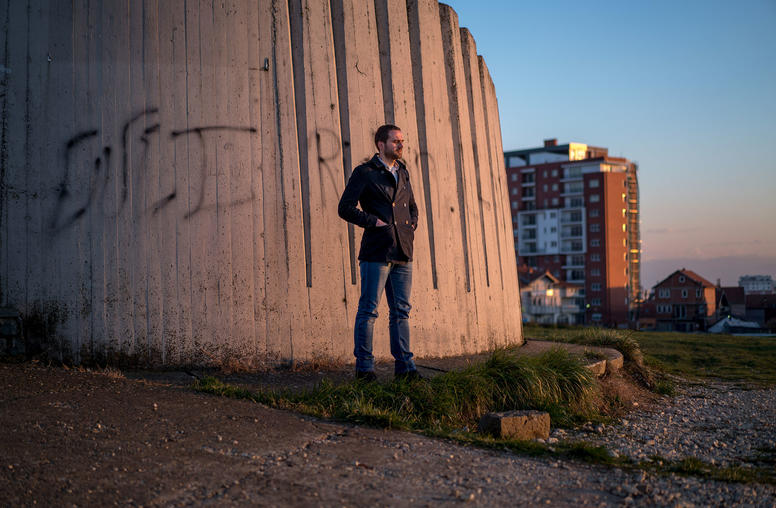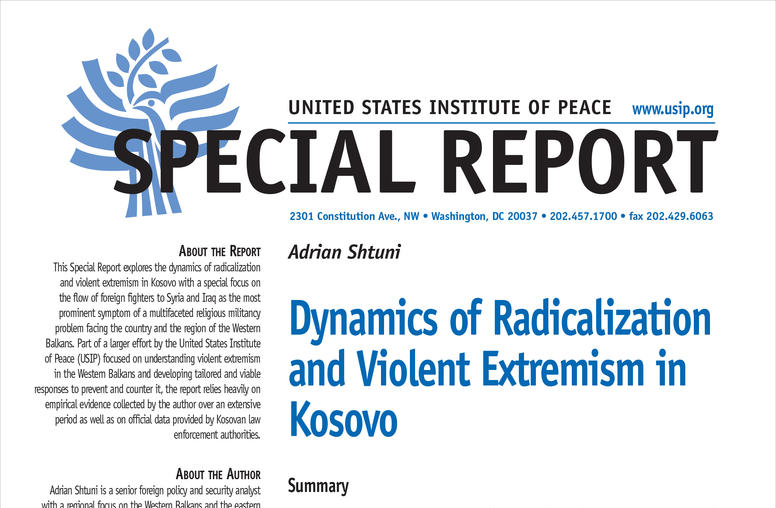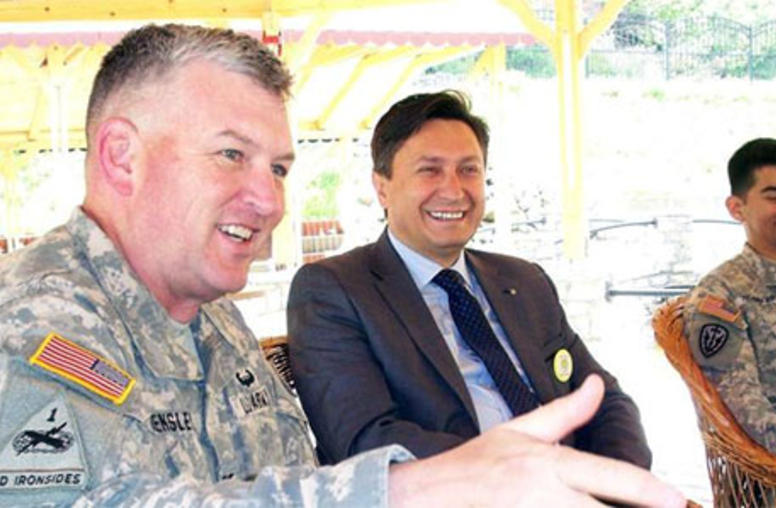Democracy and the Challenge of Change: What's Ahead for the New Government of Kosovo?
USIP had a discussion on the challenges facing Kosovo after the snap elections in December 2010.
 |
Kosovo’s snap elections in December 2010 resulted in a process of coalition formation fraught with controversy but which ultimately produced two historic watersheds: the inclusion of the Kosovo Serb Independent Liberal Party in the governing coalition and the election of a woman as president. Fundamental issues remain on the agenda, however.
Three women leaders from Kosovo visited the U.S. on a USAID-funded Hope Fellowship representing government, civil society, and academia, and addressed these issues:
- Can any tangible results be expected from EU-sponsored talks with Serbia?
- How has the inclusion of a Kosovo Serb party in the coalition government affected the relationship with Belgrade?
- What impact will accusations linking members of the Thaci administration with organized crime have on the durability of his coalition government and on Kosovo’s quest for recognition and integration into international financial and political organizations?
- Is EULEX providing effective support to Kosovo’s transition to sustainable peace and prosperity?
- How does Kosovo’s record with empowerment of women compare with other societies emerging from conflict and what lessons can be learned from the Kosovo experience?
Speakers
- Ulpiana Lama
Professor
Pjeter Budi University - Arjecta Emra
Executive Director
British Council Kosovo - Jetmira Berdynai
Director of the Department for Consular Affairs
Ministry of Foreign Affairs - Michael Dziedzic, Moderator
Senior Program Officer
Center for Conflict Management, USIP
If you are interested in this event, you may also be interested in the following Academy courses:
- Governance and Democratic Practices in War to Peace Transitions
- Land, Property and Conflict
- Peacebuilding Organizations and Institutions



